Hyundai i30 vs Lexus RX – Differences & prices compared
Compare performance, boot space, consumption and price in one view.
Find out now: which car is the better choice for you – Hyundai i30 or Lexus RX?
The Hyundai i30 (Hatchback) comes with a Petrol or Petrol MHEV engine and Manuel or Automatic transmission. In comparison, the Lexus RX (SUV) features a Full Hybrid or Plugin Hybrid engine with Automatic transmission.
When it comes to boot capacity, the Hyundai i30 offers 395 L, while the Lexus RX provides 461 L – depending on how much space you need. If you’re looking for more power, decide whether the 140 HP of the Hyundai i30 or the 371 HP of the Lexus RX suits your needs better.
In terms of consumption, the values are 5.70 L per 100 km for the Hyundai i30, and 1.10 L for the Lexus RX.
Price-wise, the Hyundai i30 starts at 24000 £, while the Lexus RX is available from 58800 £. Compare all the details and find out which model fits your lifestyle best!
Hyundai i30
The Hyundai i30 stands out in the hatchback segment with its sleek design and modern features. It offers a comfortable ride with a well-crafted interior that caters to both driver and passengers. With its emphasis on safety and technology, the i30 provides a balanced driving experience suitable for urban and suburban environments.
details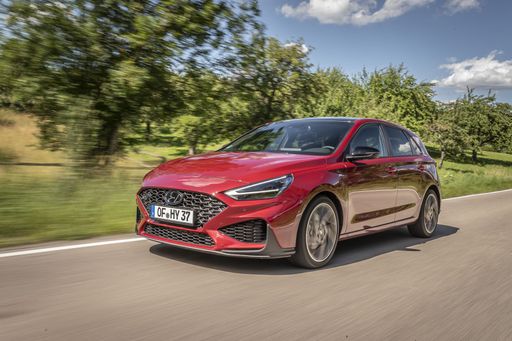 @ hyundai.news
@ hyundai.news
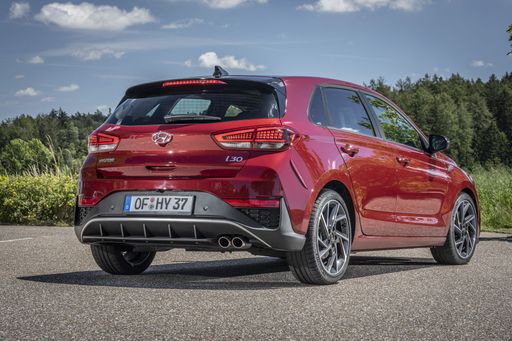 @ hyundai.news
@ hyundai.news
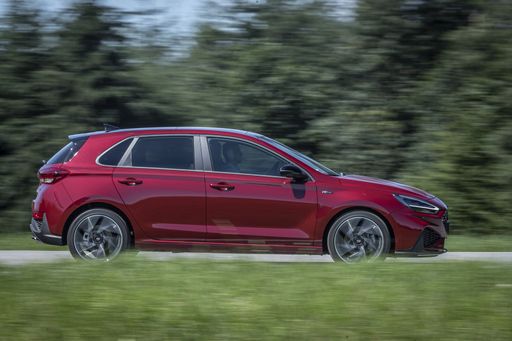 @ hyundai.news
@ hyundai.news
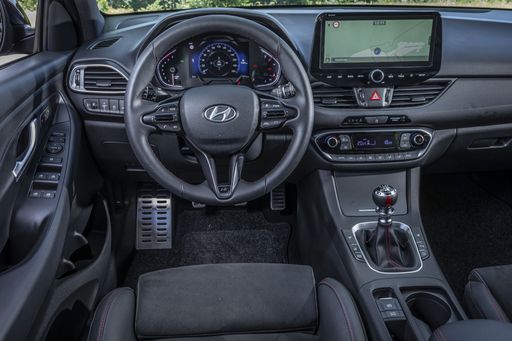 @ hyundai.news
@ hyundai.news
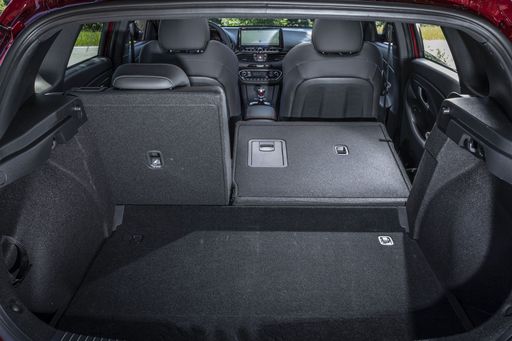 @ hyundai.news
@ hyundai.news
Lexus RX
The Lexus RX exemplifies luxury in the realm of SUVs, offering a seamless blend of comfort and sophistication. Its elegant design is complemented by a plush interior that prioritises passenger comfort and cutting-edge technology. This model provides a smooth and refined driving experience, making it a standout choice for those who value both style and performance.
details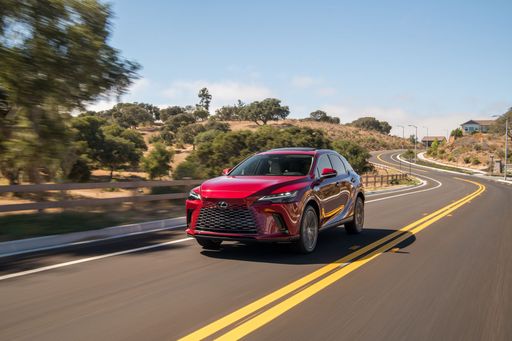 @ toyota-media.de
@ toyota-media.de
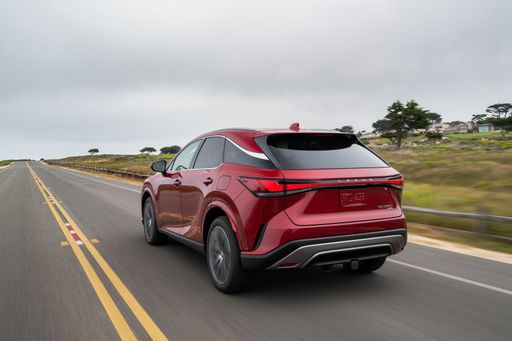 @ toyota-media.de
@ toyota-media.de
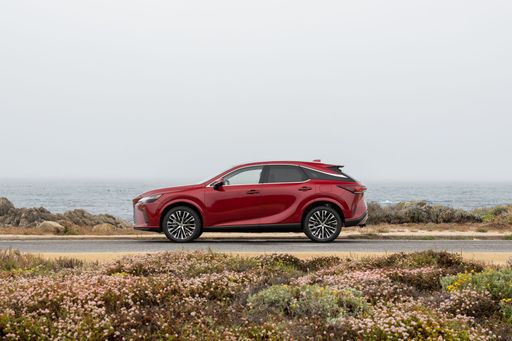 @ toyota-media.de
@ toyota-media.de
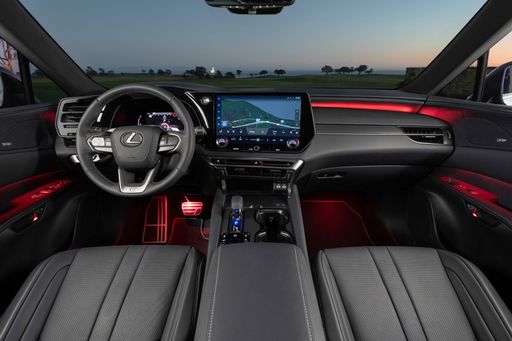 @ toyota-media.de
@ toyota-media.de
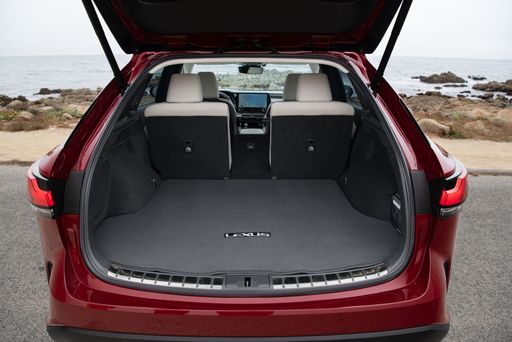 @ toyota-media.de
@ toyota-media.de

|

|
|
|
|
Costs and Consumption |
|
|---|---|
|
Price
24000 - 29300 £
|
Price
58800 - 79800 £
|
|
Consumption L/100km
5.7 - 6 L
|
Consumption L/100km
1.1 - 8 L
|
|
Consumption kWh/100km
-
|
Consumption kWh/100km
-
|
|
Electric Range
-
|
Electric Range
68 km
|
|
Battery Capacity
-
|
Battery Capacity
-
|
|
co2
130 - 136 g/km
|
co2
25 - 182 g/km
|
|
Fuel tank capacity
50 L
|
Fuel tank capacity
55 - 65 L
|
Dimensions and Body |
|
|---|---|
|
Body Type
Hatchback
|
Body Type
SUV
|
|
Seats
5
|
Seats
5
|
|
Doors
5
|
Doors
5
|
|
Curb weight
1291 - 1407 kg
|
Curb weight
2040 - 2185 kg
|
|
Trunk capacity
395 L
|
Trunk capacity
461 L
|
|
Length
4340 mm
|
Length
4890 mm
|
|
Width
1795 mm
|
Width
1920 mm
|
|
Height
1455 mm
|
Height
1695 mm
|
|
Payload
463 - 509 kg
|
Payload
575 - 620 kg
|
Engine and Performance |
|
|---|---|
|
Engine Type
Petrol, Petrol MHEV
|
Engine Type
Full Hybrid, Plugin Hybrid
|
|
Transmission
Manuel, Automatic
|
Transmission
Automatic
|
|
Transmission Detail
Manual Gearbox, Dual-Clutch Automatic
|
Transmission Detail
Automatic Gearbox
|
|
Drive Type
Front-Wheel Drive
|
Drive Type
All-Wheel Drive
|
|
Power HP
100 - 140 HP
|
Power HP
250 - 371 HP
|
|
Acceleration 0-100km/h
9.6 - 13.1 s
|
Acceleration 0-100km/h
6.2 - 7.9 s
|
|
Max Speed
178 - 197 km/h
|
Max Speed
200 - 210 km/h
|
|
Torque
172 - 253 Nm
|
Torque
551 Nm
|
|
Number of Cylinders
3 - 4
|
Number of Cylinders
4
|
|
Power kW
74 - 103 kW
|
Power kW
184 - 273 kW
|
|
Engine capacity
998 - 1482 cm3
|
Engine capacity
2393 - 2487 cm3
|
General |
|
|---|---|
|
Model Year
2024
|
Model Year
2023
|
|
CO2 Efficiency Class
D, E
|
CO2 Efficiency Class
E, B, G
|
|
Brand
Hyundai
|
Brand
Lexus
|
Hyundai i30
Introducing the Hyundai i30: A Blend of Performance and Innovation
The Hyundai i30 continues to impress the automotive world with its fine balance of performance, efficiency, and cutting-edge technology. As a quintessential hatchback, the i30 caters to a diverse range of drivers, offering a remarkable driving experience through its impressive powertrains and compact yet stylish design.
Dynamic Performance Options
At the heart of the Hyundai i30 lies a variety of engine choices designed to suit different driving preferences. The power output ranges from 100 PS to 280 PS, allowing drivers to choose an i30 that perfectly matches their performance needs. Whether you're inclined towards the spirited drive of the N Performance variants or prefer the efficiency of the mild hybrid versions, there’s a powertrain tailored for you.
Innovative Hybrid Technology
For those seeking enhanced fuel efficiency without compromising on power, the i30’s 48V mild-hybrid system offers a compelling option. Available with both manual and automatic transmissions, this innovative technology provides an ideal balance, reducing emissions and improving fuel consumption, with an impressive average of just 5.7 L/100km.
Sophisticated Design and Features
The Hyundai i30’s sleek design is complemented by thoughtful interior features that elevate the driving experience. With a boot space ranging from 395 to 450 litres, this hatchback ensures ample room for all your luggage needs. Furthermore, the car's aesthetic appeal is matched by its practical ergonomic layout, catering to both style enthusiasts and those seeking functionality.
Advanced Safety and Technology
The i30 is equipped with an array of advanced safety features, enhancing driver confidence and ensuring passenger safety. Its cutting-edge safety suite includes lane-keeping assist, forward collision warning, and adaptive cruise control. Additionally, the i30 offers a modern infotainment system, designed to keep you connected and entertained on every journey.
Conclusion: A Versatile Choice for Modern Drivers
The Hyundai i30 is more than just a hatchback; it’s a remarkable amalgamation of power, efficiency, and modern technology. Whether you're enticed by the high-performance models or the eco-friendly mild-hybrid variants, the i30 stands out as a versatile choice that meets the demands of today’s discerning drivers.
Lexus RX
Introducing the Lexus RX: A Blend of Luxury and Performance
The Lexus RX has long been a staple in the luxury SUV market, offering a harmonious blend of sophisticated styling, advanced technology, and remarkable performance. With the latest models, Lexus continues to innovate, providing both full-hybrid and plug-in hybrid options to meet the varied demands of modern drivers.
Impressive Performance Features
The Lexus RX line-up offers a range of powerful engines, including full-hybrid and plug-in hybrid variants. With power outputs ranging from 250 to 371 PS, these vehicles provide a lively yet smooth driving experience. The plug-in hybrid option delivers a particularly efficient performance, with an outstanding fuel consumption of just 1.1 L/100km and an electric-only range of up to 68 km.
The RX models are equipped with advanced all-wheel-drive systems, ensuring stability and control across various terrains. Coupled with either a CVT or a refined automatic gearbox, the RX ensures a seamless and responsive driving experience.
A Focus on Efficiency and Environmental Responsibility
Efficiency is a key consideration in the design of the Lexus RX. With CO2 emissions ranging between 25 to 182 g/km, the RX series sits comfortably within the B to G CO2 efficiency classes. This reflects a significant commitment to reducing the environmental footprint, making the RX a savvy choice for eco-conscious drivers.
Advanced Technology and Comfort
Inside the Lexus RX, you will find a cabin rich with technology aimed at enhancing comfort and convenience. With seating for five and a spacious boot capacity of 461 litres, the RX is designed with both comfort and practicality in mind. Designed with premium materials and advanced climate control systems, the RX ensures a plush environment for all occupants.
Infotainment systems are state-of-the-art, featuring large touch screens, intuitive controls, and compatibility with both Android Auto and Apple CarPlay. This tech-centred cockpit ensures that both the driver and passengers enjoy connectivity and entertainment whilst on the move.
Sophisticated Safety Features
Safety is paramount in the Lexus RX, which comes equipped with an impressive suite of advanced safety features, including adaptive cruise control, lane-keeping assist, and a comprehensive airbag system. These features work in harmony to provide peace of mind, whether driving in city traffic or cruising on the open road.
Verdict: A Luxurious Yet Practical Choice
The Lexus RX stands out in the SUV segment, offering a compelling mix of luxury, performance, and technological innovation. Whether prioritising fuel efficiency, comfort, or cutting-edge technology, the RX series caters to diverse preferences, making it a top contender for anyone seeking a premium driving experience without compromise.
The prices and data displayed are estimates based on German list prices and may vary by country. This information is not legally binding.
